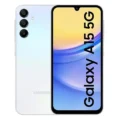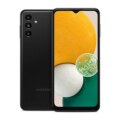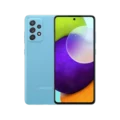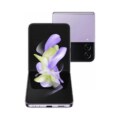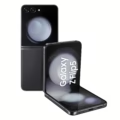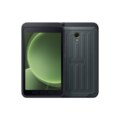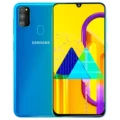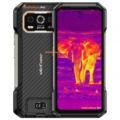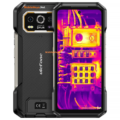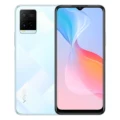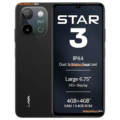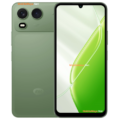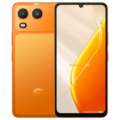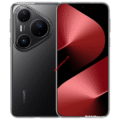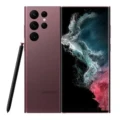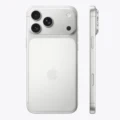Price List: Under Tk.5,000 | Tk.5001-10000 | Tk.10001-15000 | Tk.15001-20000 | Tk.20001-30000 | Tk.30001-40000 | More Mobiles
- Home
- All Mobile
- Samsung
- Samsung Galaxy A50
Samsung Galaxy A50



Specifications
Price in Bangladesh
| Official | 4GB 64GB ৳22,990 |
| Unofficial Unofficial prices and phones are available only non authorized shops. The device does not come with an official warranty in Bangladesh. | 6GB 128GB ৳23,500 |
General
| Device Type | SmartPhone |
| Model | SM-A505F, SM-A505FN, SM-A505GN, SM-A505G, SM-A505FM, SM-A505YN, SM-A505W, SM-A505X, SM-A505U, SM-A505GT, SM-A505U1, SM-A505G, SM-A505N, SM-S506DL |
| Announced | February, 2026 |
| Released | March, 2026 |
| Status | Available |
Hardware & Software
| Operating System OS => Every computer system run on a base software called Operating System (OS). Operating System controls all basic operations of the computer (such as smartphone, PDAs, tablet computers and other handheld devices). The Operating System allows the user to install and run third party applications (apps), apps are used to add new functionality to the device. | Android |
| OS Version | v9.0 (Pie) |
| User Interface UI or user interface of a device is the look and feel of the on-screen menu system. How it works, its color scheme, how it responds to button presses, all of these things are part of the user interface. | One UI 3.0 |
| Chipset Chipset is a group of integrated circuits designed to perform one or a more dedicated functions, often with real time computing constraints, Popular smartphones are equipped with more advanced embedded chipsets that can do many different tasks depending on their programming. | Exynos 9610 |
| CPU CPU (Central Processing Unit) mostly known as processors, CPU processes instructions in order to carry out certain functions that make your device operate properly. Processors are often described as the brain of computers, smartphones and tablets, Smartphones and tablets rely on processors to carry out their every task, Processors are an incredibly important factor in selecting any type of computing device, including your smartphone. | Octa core (2.3 GHz, Quad core, Cortex A73 + 1.7 GHz, Quad core, Cortex A53) |
| CPU Cores | 8 Cores |
| Architecture | 64 bit |
| Fabrication | 10 nm |
| GPU GPU (Graphics Processing Unit) is a single-chip processor designed to rapidly manipulate and alter memory to accelerate the creation of images in a frame buffer intended for output to a display, This includes things such as lighting effects, object transformations, and 3D motion. | Mali-G72 MP3 |
| RAM (Memory) RAM (Random Access Memory) is a type of computer memory that can be accessed randomly, any byte of memory can be accessed without touching the preceding bytes that allows information to be stored and accessed quickly from random locations. RAM is the most common type of memory found in computer systems, smartphones, tablets and other electronic devices. | 4 GB, 6 GB |
Design
| Dimensions | 158.5 x 74.7 x 7.7 mm (6.24 x 2.94 x 0.30 in) |
| Weight | 166 g (5.86 oz) |
| Colors |
Black, White, Blue, Coral |
| Build Material | Glass front (Gorilla Glass 3), plastic back, plastic frame |
Display
| Display Type Display Technology => A number of display technologies and types used in mobile phones => TFT (Thin Film Transistor), IPS (In-Place Switching), OLED (Organic Light Emitting Diode), AMOLED (Active-Matrix Organic Light-Emitting Diode), Super AMOLED (an even advanced version of AMOLED), Resistive Touchscreen (Resistive touchscreens contain two layer of conductive material with a very small gap between them which acts as a resistance), Capacitive Touchsceen (Capacitive touchscreen technology consists of a layer of glass coated with a transparent conductor) | Super AMOLED |
| Size | 6.4 inches (16.26 cm) |
| Resolution | 1080x2340 px (FHD+) |
| Aspect Ratio | 19.5:9 |
| Pixel Density Pixel Density (PPI) is refers to the concentration of pixels on a particular display, measured in pixels per inch (ppi). Pixel density is calculated by dividing the diagonal pixel resolution of a display by its diagonal size, higher pixel density better display quality. | 403 ppi |
| Screen to Body Ratio | 84.97 % |
| Touch Screen | Capacitive Touchscreen, Multi-touch |
| Refresh Rate | 60 Hz |
| HDR 10 / HDR+ support |
Rear Camera
| Camera Setup | Triple |
| Main Camera | 25 MP |
| Second Camera | 8 MP |
| Third Camera | 5 MP |
| Autofocus | Yes |
| OIS | |
| Flash Flash Light => There is commonly two types of flash lights are used in camera mobile phones, LED Flash (LED flash offers lower power consumption with drive circuitry that takes up very little room, LEDs can be strobed faster than any other light source), Xenon Flash (xenon flash produces an extremely intense full-spectrum white light for a very short duration) | LED Flash |
| Image | 5288 x 3968 Pixels |
| Settings | Exposure compensation, ISO control |
| Zoom | Digital Zoom |
| Shooting Modes | Continuous Shooting, High Dynamic Range mode (HDR) |
| Aperture | f/1.7 |
| Camera Features |
Auto Flash, Face detection, Touch to focus |
| Video | 2160p@30fps, 1080p@30fps |
| Video Recording Features | 1920x1080 |
| Video FPS | 30 fps |
Front Camera
| Camera Setup | Single |
| Secondary |
25 MP, f/2.0 |
| Aperture | f/2.0 |
| Camera Features |
Fixed Focus |
| Video | 1080p@30fps |
| Video FPS | 30 fps |
Battery
| Battery Type Battery Type => Cell phones run on various kinds of batteries depending on the manufacturer, phone size or shape and features. There are basically four types of cell phone batteries => Lithium Polymer, Lithium Ion, Nickel Metal Hydride and Nickel Cadmium. | Li-Ion (Lithium Ion) |
| Placement | Non-removable |
| Capacity Battery Capacity is a measure (typically in Amp-hr) of the charge stored by the battery, and is determined by the mass of active material contained in the battery. The battery capacity represents the maximum amount of energy that can be extracted from the battery under certain conditions. | 4000 mAh |
| Quick Charging | 15W wired |
| USB Type-C | USB Type-C 2.0 |
| Talk Time Talk Time is the longest time that a single battery charge will last when you are constantly talking on the phone under perfect conditions, Ambient temperature and highly dependent on the cellular network environment such as the distance to the closest cell network tower. | Up to 23 Hours(3G) |
Storage
| Storage Type | UFS 2.1 |
| Storage Capacity | 64 GB, 128 GB |
| USB OTG |
Network
| 2G Network |
GSM 850 / 900 / 1800 / 1900 |
| 3G Network |
HSDPA 850 / 900 / 1900 / 2100 |
| 4G Network |
1, 3, 5, 7, 8, 20, 38, 40, 41 |
| SIM SIM (Subscriber Identity Module) is a small card that contains mobile network subscriber's account information. This allows the phone using the card to attach to a mobile network. The SIM card is most commonly associated with GSM and UMTS mobile networks. Moving a SIM card from one phone to another allows a subscriber to switch mobile phones without having to contact their mobile network carrier. SIM cards can also be used by a phone to store limited amounts of data, such as phone numbers and text messages. | Standard SIM |
Data
| GPRS GPRS (General Packet Radio Service) is a packet oriented mobile data service on the 2G and 3G cellular communication system's global system for mobile communications (GSM), Generally, GPRS is used for the purpose of wireless data transfer, such as sharing pictures and videos or browsing the Internet via a mobile phone connection. | |
| EDGE EDGE (Enhanced Data GSM Environment) is a wireless network technology generally considered the next step in the 2G network offers data transfer rates up to four times faster than ordinary GSM networks, Generally, EDGE is used for the purpose of wireless data transfer, such as sharing pictures and videos or browsing the Internet via a mobile phone connection. | |
| Speed | HSPA, LTE |
| Web Browser Web Browser => a web browser is a software application used to locate, retrieve and display content on the World Wide Web, including Web pages, images, video and other files, The primary function of a web browser is to render HTML, the code used to design or markup webpages. | HTML5 |
Messaging
| SMS SMS (Short Messaging Service) is a text messaging service component of phone, Web, or mobile communication systems. It uses standardized communications protocols to allow mobile phone devices to exchange short text messages over the networks. | Yes |
| MMS MMS (Multimedia Messaging Service) is a standard way to send messages that include multimedia content (audio clips, video clips and images) to and from mobile phones over wireless networks using the WAP protocol. | |
| Email Email (Electronic Mail) is a system for receiving, sending, and storing electronic messages, Similar to a letter, email is text messages that may contain files, images, or other attachments sent via the internet to a recipient by using applications and software prograps. An email address is required to receive email, and that address is unique to the user. | Yes |
| IM IM (Instant Messaging) is an exchange of text messages through a software application, it enable you to create a kind of private chat room with another individual in order to communicate in real time over the Internet. | Yes |
Connectivity
| Bluetooth Bluetooth is a wireless communications technology for exchanging data between mobile phones, headsets, computers and other network devices over short distances without wires, Bluetooth technology was primarily designed to support simple wireless networking of personal consumer devices. | 5.0, A2DP, LE |
| Wi-fi Hotspot | |
| Infrared Infrared connectivity is an old wireless technology used to connect two electronic devices. It uses a beam of infrared light to transmit information and so requires direct line of sight and operates only at close range. | |
| USB | USB Type-C 2.0, OTG |
| GPS GPS The Global Positioning System is a satellite-based radio navigation system, GPS permits users to determine their position, velocity and the time 24 hours a day, in all weather, anywhere in the world, In order to locate your position, your device or GPS receiver must have a clear view of the sky. | GPS, GLONASS, GALILEO, BDS |
| NFC NFC (Near field communication) is a set of standards for smartphones and similar devices to establish peer-to-peer radio communications with each other by touching them together or bringing them into proximity, usually no more than a few inches. |
Media
| FM Radio | FM radio |
| Loudspeaker | Yes |
| 3.5mm Jack | Yes |
Sensors & Security
| Fingerprint Sensor | |
| Fingerprint Sensor Position | On-screen |
| Light Sensor | Light sensor, Proximity sensor, Accelerometer, Compass, Gyroscope |
| Face Unlock | Yes |
More
| Made By | Korea |
| SAR | 1.31 W/kg (head) 0.58 W/kg (body) |
| SAR EU | 0.27 W/kg (head) 1.39 W/kg (body) |
Performance Tests
| AnTuTu | 144574 (v7) |
| GeekBench | 5396 (v4.4) |
| GFXBench | 8fps (ES 3.1 onscreen) |
| Display | 551 nits max brightness (measured) |
| Loudspeaker | Voice 68dB / Noise 71dB / Ring 82dB |
| Battery (old) | Endurance rating 98h |
Samsung Galaxy A50 Price in Bangladesh
The Samsung Galaxy A50 is available in Bangladesh at an official price starting from ৳22,990 for the 4GB RAM and 64GB storage variant. An unofficial 6GB RAM and 128GB storage model is also available around ৳23,500. This mid-range smartphone strikes a great balance between affordability and performance.
The Galaxy A50 stands out with its sleek design, vibrant 6.4-inch Super AMOLED display, capable triple rear cameras, and a reliable 4000mAh battery. Powered by the Exynos 9610 chipset, it offers smooth everyday performance with decent gaming capabilities. The device’s fingerprint sensor embedded in the display and its modern One UI software make it a compelling choice for users seeking solid features without breaking the bank.
Price & Variants
| RAM & Storage | Price (BDT) | Status |
|---|---|---|
| 4GB RAM, 64GB | ৳22,990 | Official |
| 6GB RAM, 128GB | ৳23,500 | Unofficial |
Samsung Galaxy A50 Specifications
The Samsung Galaxy A50 is a popular mid-range smartphone from Samsung, launched in March 2019, offering a compelling mix of design, display, camera, and performance for its price segment.
| Feature | Details |
|---|---|
| Model Name | Samsung Galaxy A50 |
| Release Date | March 2019 |
| Market Availability | Available |
| Official Price | ৳22,990 (4GB/64GB variant) |
| RAM & Storage | 4GB/64GB, 6GB/128GB |
Display and Design
The Galaxy A50 features a 6.4-inch Super AMOLED display with a resolution of 1080×2340 pixels (FHD+), offering a sharp and vibrant viewing experience with a 19.5:9 aspect ratio. The display delivers bright visuals with a pixel density of 403 ppi and supports HDR10/HDR+ for enhanced contrast and color accuracy. The screen has a standard 60Hz refresh rate and is protected by Gorilla Glass 3.
Design-wise, the phone sports a glass front with Gorilla Glass 3 protection, complemented by a plastic back and frame. It measures 158.5 x 74.7 x 7.7 mm and weighs a light 166 grams, making it comfortable to hold. Available in Black, White, Blue, and Coral, the Galaxy A50 boasts a modern aesthetic with slim bezels and an immersive screen-to-body ratio of approximately 85%.
Performance and Processor
Powered by Samsung’s Exynos 9610 chipset built on a 10nm process, the Galaxy A50 houses an octa-core CPU configuration combining four high-performance Cortex-A73 cores clocked at 2.3 GHz and four energy-efficient Cortex-A53 cores at 1.7 GHz. This setup, along with the Mali-G72 MP3 GPU, delivers smooth performance for daily tasks, moderate gaming, and multitasking.
The device comes with RAM options of 4GB or 6GB, paired with internal storage variants of 64GB or 128GB respectively. Both variants support expandable storage via microSD card. The UFS 2.1 storage ensures fast data access speeds, contributing to snappy app launches and overall responsiveness.
Camera and Video
The Samsung Galaxy A50 sports a versatile triple rear camera setup. The main sensor is a 25MP shooter with an f/1.7 aperture that captures bright and detailed images. It is complemented by an 8MP ultrawide camera and a 5MP depth sensor, allowing users to shoot wide-angle photos and achieve portrait effects with bokeh.
Camera features include autofocus, LED flash, face detection, HDR mode, and continuous shooting. Video recording supports up to 4K UHD at 30fps and Full HD at 30fps.
On the front, the Galaxy A50 offers a 25MP selfie camera with f/2.0 aperture and fixed focus, capable of recording 1080p videos at 30fps. This front shooter delivers sharp selfies with good color reproduction.
Battery and Charging
The phone is equipped with a 4000mAh non-removable Li-Ion battery, providing reliable battery life for all-day use. It supports 15W fast wired charging via USB Type-C 2.0, enabling quick top-ups. Samsung claims up to 23 hours of 3G talk time, making it suitable for heavy users.
While there is no wireless charging, the battery endurance rating stands strong at 98 hours, reflecting efficient power management in everyday scenarios.
Connectivity and 5G Support
The Samsung Galaxy A50 supports 2G, 3G, and 4G LTE networks, covering multiple bands used in Bangladesh. However, it does not support 5G connectivity.
Connectivity features include dual SIM support (Standard SIM), Bluetooth 5.0 with A2DP and LE, Wi-Fi hotspot, infrared, and USB Type-C 2.0 with OTG support. For navigation, it offers GPS, GLONASS, GALILEO, and BDS satellite systems. NFC support is present for contactless payments and quick pairing.
Additional Features
Security is enhanced with an in-display fingerprint sensor and Face Unlock functionality. The phone runs Android 9.0 (Pie) with Samsung’s One UI 3.0, delivering a user-friendly and customizable experience.
Sensors onboard include a light sensor, proximity sensor, accelerometer, compass, and gyroscope. The device also retains a 3.5mm headphone jack and includes FM radio support. Stereo speakers are not available.
Reason to Buy
- Large, vibrant Super AMOLED display with HDR support for excellent media consumption
- Versatile triple camera setup offering ultrawide and depth-sensing capabilities
- Solid mid-range performance powered by the Exynos 9610 chipset
- Reliable 4000mAh battery with fast charging for extended usage
- Modern design with lightweight build and in-display fingerprint sensor
- Affordable pricing with multiple RAM/storage options to suit budgets
Verdict
The Samsung Galaxy A50 is an excellent mid-range smartphone that offers a balanced mix of design, display quality, camera versatility, and solid performance. Its Super AMOLED screen and capable cameras appeal to multimedia lovers, while the Exynos chipset and ample RAM handle daily tasks and moderate gaming smoothly. The large battery and fast charging support round out a package that suits budget-conscious users looking for reliable features without premium price tags. It is ideal for young users and anyone seeking a stylish phone with good selfie capabilities.
FAQ
Q: Does the Galaxy A50 support 5G?
A: No, the Galaxy A50 supports up to 4G LTE but does not have 5G connectivity.
Q: Can the storage be expanded?
A: Yes, the phone supports microSD card expansion for additional storage.
Q: What Android version does it run?
A: It ships with Android 9.0 Pie, layered with Samsung’s One UI 3.0.
Q: Does it have a headphone jack?
A: Yes, there is a 3.5mm audio jack for wired headphones.
Q: Is the fingerprint sensor reliable?
A: The fingerprint sensor is an on-screen type and generally works well under good lighting conditions.
Alternatives to Samsung Galaxy A50
- Samsung Galaxy A52 — Offers upgraded performance, better camera, and 5G support.
- Realme 8 — Competitive pricing with AMOLED display and solid performance.
- Xiaomi Redmi Note 10 — Affordable with AMOLED display, Snapdragon chipset, and good cameras.
- Samsung Galaxy M32 — Larger battery and newer software with good value.
User Reviews
Disclaimer Note
We do not guarantee that the information of this page is 100% accurate and up to date.



